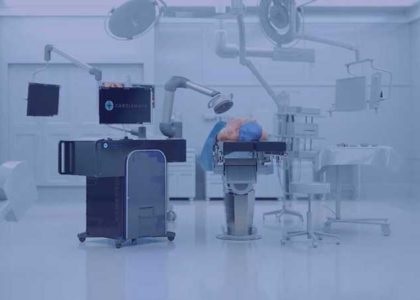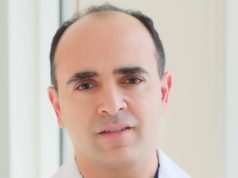 Cardiawave has announced the success of its first-in-human I (FIH I) safety and feasibility clinical trial for Valvosoft its breakthrough technology that allows for the remote application of a focused therapeutic ultrasound beam to restore valve function in patients with aortic stenosis (AS).
Cardiawave has announced the success of its first-in-human I (FIH I) safety and feasibility clinical trial for Valvosoft its breakthrough technology that allows for the remote application of a focused therapeutic ultrasound beam to restore valve function in patients with aortic stenosis (AS).
This intense beam decreases the stiffness of the aortic valve and improves its functional opening to allow sufficient oxygenated blood to reach the brain and the rest of the body. This non-invasive therapy is a new treatment option for aortic stenosis, as the only current medical response is to replace the aortic valve with open heart surgery, or with a transcatheter aortic valve implantation (TAVI).
The purpose of the FIH I study was to assess the safety, and operating system of the first generation of Valvosoft as well as the clinical effects of softening calcific aortic valve tissues with a beating heart. Thirty patients (average age 84 years, with nine patients over 90) have now been successfully treated in France and The Netherlands, the last being in late 2021.
According to a press release from Cardiawave, Valvosoft provided a sustained repair to the aortic valve for up to 12 months post treatment. The study has proven the safety and efficacy, as well as the ease of the procedure with a 60 minute non-invasive outpatient treatment, the company added. Following the Valvosoft treatment, two patients were able to have TAVI valve replacement.
“The positive results of the safety and feasibility clinical studies we observed in our first-In-human trial are extremely encouraging. We have shown that Valvosoft can treat patients who are exceedingly fragile and sick for whom no medical solution exists today. This represents a new treatment solution for aortic stenosis, over and above aortic valve replacement from which only a small minority of patients can benefit. Cardiawave’s Valvosoft has the potential to become a standard new treatment for this deadly disease,” said Benjamin Bertrand, CEO of Cardiawave. “We are currently working on receiving the necessary authorisations in Europe for further clinical trials over the next few months. I am confident that these will once again confirm the therapeutic benefits of Valvosoft,” he added.
“Valvosoft’s non-invasive treatment brings great hope for patients with aortic stenosis and for their families. It offers the possibility of an efficient outpatient treatment for fragile patients, for whom valve replacement is too risky. In the longer term, treating patients with less severe stenosis would be a major step forward.” declared Emmanuel Messas (Georges Pompidou European Hospital, Paris, France).
A second feasibility and safety FIH II study is underway with 10 further patients in Serbia. This includes brain MRI evaluation both before and after treatment to assess the risk of a stroke. Four patients were safely treated by the end of December 2021. None of the MRIs detected an abnormality. Six further patients will be treated during the first half of 2022.
On the back of these promising clinical results, Cardiawave has launched its Series B financing. This is expected to be completed in the second half of 2022. These funds will be used to finance the next phase of clinical trials in Europe and the USA.
Between April and December 2022, Cardiawave plans to enrol around 50 aortic stenosis patients across 10 hospitals in France, The Netherlands and Germany. This new European clinical trial targets the granting of a CE mark. The clinical trial protocol includes patient monitoring after one, six and 12 months.













